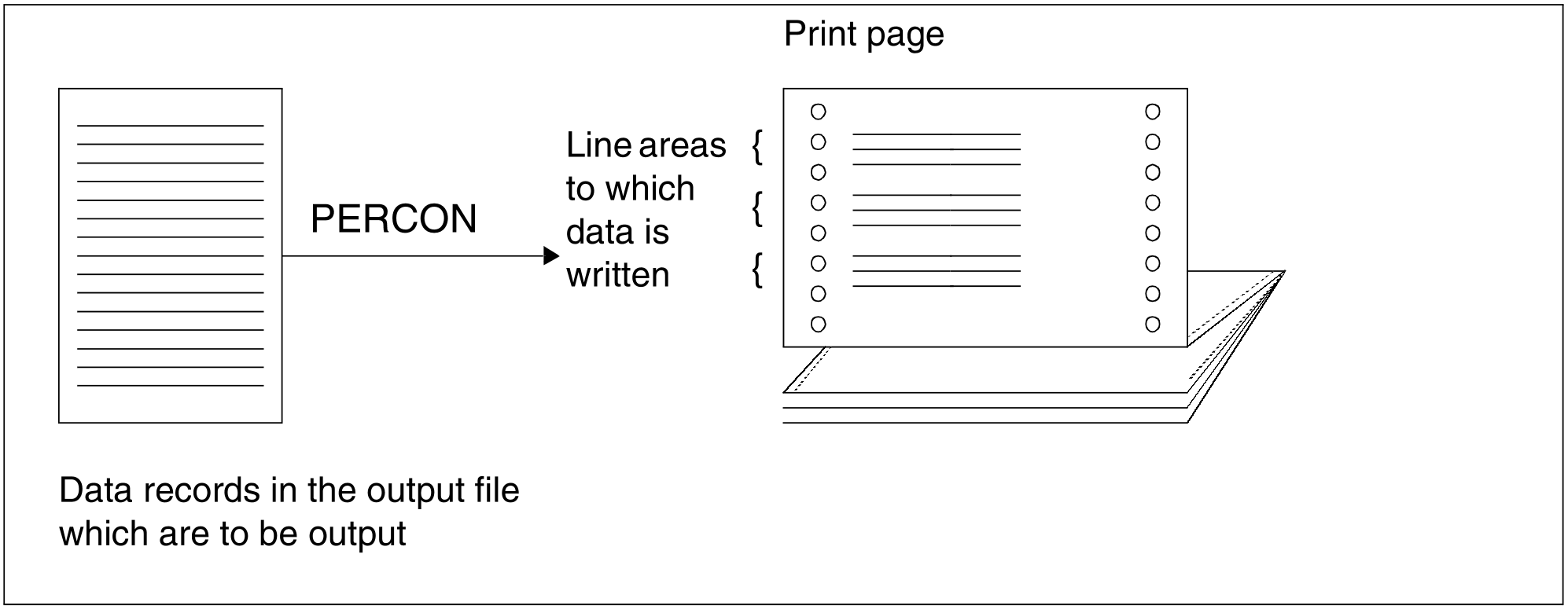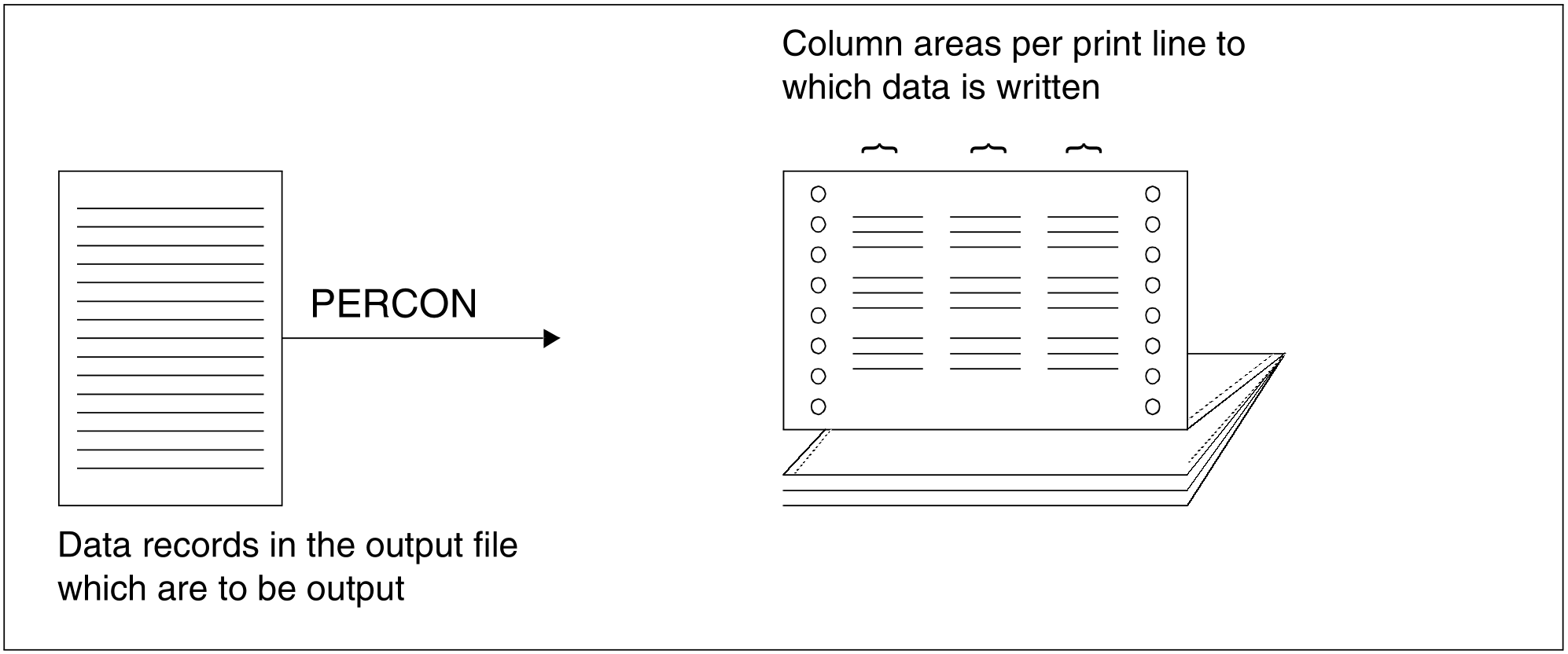When copying files or editing tapes, the page-justified records to be output are edited with the aid of the SET-PAGE-LAYOUT statement. The output records have a variable record format. Output is to SYSOUT, SYSLST or to a cataloged file. The unedited output records have a variable record format in a SAM file.
The unedited output records are used as the basis for editing; these records have the following characters by default:
32768 bytes maximum length
undefined record format.
The default setting for unedited records can be modified using the following parameters in the ADD-FILE-LINK statement:
RECORD-SIZE and/or BUFFER-LENGTH is used to define the record length. If both operands are specified, the lesser of the two values is assumed as the maximum record length.
RECORD-FORMAT is used to define the format of the unedited output record. If RECORD-FORMAT=VARIABLE, the unedited record is provided with an additional record length field which is included in editing as a data section.
Note
If the output file has been defined with FILE-ATTRIBUTES = INPUT-FILE and if the first input file has the record format VARIABLE, the unedited record is still provided with the additional record length field in the data section.
If output to a cataloged file is required, the specifications in the TFT entry have priority over those in the ASSIGN-OUTPUT-FILE statement. Specifications in the catalog entry are not interpreted.
The output record counter (RECORD-COUNTER) counts the number of unedited records.
When an empty file is edited, a page which contains the header line is generated. If no header line is required, an empty page is generated.
Formatting the output via page and line editing
The print format can be defined on either a page or line basis by means of the SET-PAGE-LAYOUT statement. The following specifications are possible:
The header line can be formatted (HEADER-LINE operand).
Line areas to which the output records are to be written can be defined (OUTPUT-AREA operand).
Figure 2: Formatting line areas
Column areas to be written to in each line can be defined. Each of these areas is delimited by a space (COLUMN-SIZE operand).
Figure 3: Formatting column areas
The number of characters of the unedited output record in each output line can be defined (LINE-SIZE operand).
Output of lines with identical contents can be suppressed (SUPPRESS-EQUAL-LINES operand).
On each page lines can be defined in which text defined by the user is to be inserted (user lines). No output records are written to these lines (USER-LINE operand).
Data can be represented in hexadecimal format, character format or both (OUTPUT-FORMAT operand).
The number of empty lines following an output line can be defined (SPACING operand).
The maximum length of an edited output record is the product of the leader and the operands COLUMN-SIZE, LINE-SIZE and OUTPUT-FORMAT. The length must not exceed 204 bytes.
Standard page formatting
In the case of output to SYSLST or SYSOUT as well as when a SET-GROUP-ATTRIBUTES, statement is specified, page editing is performed even if no SET-PAGE-LAYOUT statement was specified.
Standard page formatting has the following form:
Standard page formatting for file copying
Page formatting | Output medium | |
| SYSLST or a cataloged file | SYSOUT | |
Page header (HEADER-LINE) | Page counter | None |
Data area (OUTPUT-AREA) | Line 5 through 66 | All lines |
Data format (OUTPUT-FORMAT) | Character | Character |
Line length (LINE-SIZE) | 136 characters | 64 characters |
Group length (COLUMN-SIZE) | 136 characters | 16 characters |
Suppression of identical continuation lines | YES | YES |
Additional information (as leader on the line) | None | 9 characters Record |
Standard page formatting for tape editing
Page formatting | Output medium | |
| SYSLST | SYSOUT | |
Page header (HEADER-LINE) | Date, time of day page | None |
Data area (OUTPUT-AREA) | Line 5 through 66 | All lines |
Data format (OUTPUT-FORMAT) | Character and | Character and |
Line length (LINE-SIZE) | 100 characters | 64 characters |
Group length (COLUMN-SIZE) | 20 characters | 16 characters |
Suppression of identical continuation lines | YES | YES |
Additional information (as leader on the line) | 21 characters | 9 characters |


